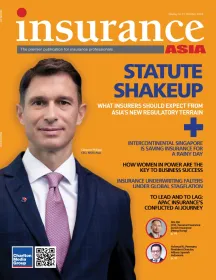
Korean insurers are likely to keep fidgeting business mix amidst K-ICS implementation
K-ICS ratio without applying transitional measures stood at 192.7% at the end of the first quarter of 2023.
Korean insurers have implemented the Korean Insurance Capital Standard (K-ICS), which in turn, is reshaping the operational strategies, according to Fitch Ratings.
Specifically, the adoption of K-ICS in 2023 has impacted the solvency strength of South Korean insurers to varying degrees, depending on their capital structures and risk profiles.
Many insurers are still in the process of fully implementing the framework.
During the transition phase, insurers are likely to continually adjust their business mix and investment strategies to optimise their required capital levels.
Insurers that have adopted transitional measures are likely to continuously adjust their operational approaches, including business composition and asset mix, to maintain capital adequacy.
The required capital will gradually increase each year during the transition period, which may pose particular challenges for small- and medium-sized life insurers with limited contractual service margins if they struggle to strengthen available capital through equity or subordinated debt issuances.
They may also seek to bolster available capital through equity injections or the issuance of capital supplementary bonds. Additionally, insurers could explore reinsurance, including co-insurance arrangements, as part of their capital management strategies, depending on affordability.
K-ICS was introduced concurrently with the adoption of IFRS 17. One significant feature that sets K-ICS apart from the previous risk-based capital regime (RBC) is its requirement for marked-to-market valuations for both assets and liabilities.
Other important considerations under K-ICS include the inclusion of more granular risk categories that were not measured under the previous RBC regime, such as longevity, surrender, expense, and catastrophe risks.
ALSO READ: More Korean insurers expanding overseas: FSS
K-ICS also tightens the confidence level used for regulatory capital calibration to 99.5%, up from the previous 99%.
The regulator has provided insurers with a transition period of up to 10 years to apply transitional measures, allowing for a smooth transition to the new regime.
These measures cover insurance risk, equity risk, interest risk, and available capital categories. Insurers can apply a measure in each category based on their capital conditions, facilitating a gradual adoption of the K-ICS framework.
According to the regulator, as of the end of March 2023, 19 insurance companies out of 53 in the market had implemented transitional measures. These companies consist of 12 life insurers, 6 non-life insurers, and one reinsurance company.
The average K-ICS ratio without applying transitional measures stood at 192.7% at the end of the first quarter of 2023, ranging from -0.6% to 359.7%.
Three life insurers had K-ICS ratios below 100% of the regulatory minimum without the transitional measures, primarily due to a sharp decline in available capital under the new regime and relatively small contractual service margins.
However, considering the transitional measures, the average K-ICS ratio improved to 219.5% for life insurers.



















 Advertise
Advertise


